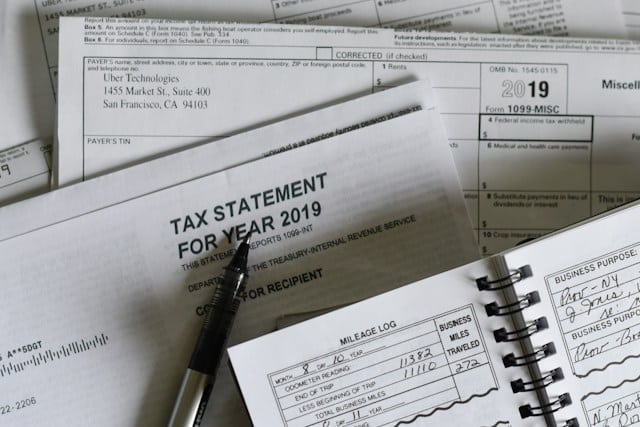As small business owners, grappling with the intricacies of the tax system can often feel like trying to solve a puzzle with constantly shifting pieces. The complexities of small business taxation can seem daunting, but with a clear understanding and strategic approach, you can effectively navigate these financial waters and ensure your business remains tax-compliant. This article seeks to simplify the labyrinth of small business taxation and provide you with the tools you need to approach your taxes confidently.
Understanding the Basics of Small Business Taxation
First, let’s delve into the fundamental concepts of small business taxation. If you aren’t entirely comfortable with these terms, don’t worry. We’re here to make them more accessible and relevant to your business operations.
A voir aussi : What Are the Best Practices for Integrating User Experience Design in Product Development?
All businesses are legally required to file an income tax return each year. This requirement applies whether you’re a solo entrepreneur or operating a business with multiple employees. The type of tax return you need to file will depend on the legal structure of your business. For instance, sole proprietors typically file IRS Form 1040, Schedule C, while partnerships file Form 1065, and corporations file Form 1120.
One of the essential aspects you need to grasp is the concept of deductions. These are specific expenses that the IRS allows you to subtract from your income before determining the amount of tax you owe. Commonly deducted expenses include office supplies, vehicle expenses, and even a portion of your home if you work from it. Understanding what deductions you’re eligible for can significantly reduce your tax liability.
Dans le meme genre : What Are the Strategies for Small Businesses to Tap into Global Markets?
Planning for Taxes Year-Round
Keeping on top of your taxes is a year-round responsibility, not just something you hustle to handle as April 15th approaches. Sound financial planning throughout the year can save you a great deal of stress and possibly even some money when tax season rolls around.
Consider setting aside a portion of your income each month to cover your estimated tax liability. This way, when it’s time to pay your taxes, you’re not scrambling to find the funds. Additionally, keep meticulous records of your income and expenses throughout the year. Good record-keeping not only makes it easier to file your return but also provides a clear financial picture of your business, which is invaluable for decision-making purposes.
Also, make the most of tax-advantaged retirement accounts. Contributions to these accounts can often be deducted from your income, reducing your tax liability. Plus, you’re saving for your future – a win-win situation.
Maximizing Your Deductions
Deductions can be a significant boon for small businesses, but they can also be a bit of a minefield if you’re not sure what you’re doing. The key here is to understand what expenses qualify as deductions and how to properly document them.
Generally, for an expense to be deductible, it must be both ordinary and necessary for your business. An ordinary expense is one that is common and accepted in your business or trade, while a necessary expense is helpful and appropriate for your business. This includes day-to-day expenses like utility bills for your business premises, salary payments for your employees, or even the cost of business meals.
Remember, though, that the IRS requires detailed documentation for deductions. So, make sure to keep accurate records, including receipts, invoices, and bank and credit card statements.
Navigating State Taxes
In addition to federal income taxes, most small businesses must pay state taxes. These can range from state income taxes, sales taxes, and property taxes. The specifics of these taxes can vary widely from state to state, so it’s crucial to understand the particular tax obligations of the state(s) in which you do business.
If your business operates in multiple states or sells products online, state tax obligations can quickly become complicated. In many cases, you are required to pay sales tax in any state where you have a physical presence or do a significant amount of business. Be sure to research and understand the tax laws for all relevant states.
Seeking Professional Help for Taxation
Finally, don’t be afraid to seek professional help. Tax laws are complex and constantly changing, and the consequences of errors can be severe. Hiring a tax professional can provide peace of mind and allow you to focus on running your business.
A tax professional can help you understand your tax obligations, plan for your taxes, identify potential deductions, and even represent you in case of an audit. Remember that the cost of hiring a tax professional is a business expense and can be deducted.
In the end, navigating the ever-shifting landscape of small business taxation requires patience, planning, and a good understanding of the rules. And when in doubt, seeking professional guidance can be a worthy investment. With these tools in your toolbox, you’ll be better equipped to handle the taxation needs of your small business.
Exploring Credits and Other Tax Savings Opportunities
Diving deeper into the sea of small business taxes, you may come across the concept of tax credits. Unlike deductions which reduce your taxable income, credits directly shave off your tax liability. There are several tax credits available to businesses that can provide significant savings if you qualify. Familiarizing yourself with these opportunities is an essential part of your tax planning strategy.
For instance, the Small Business Health Care Tax Credit is available for businesses that pay at least half the cost of health coverage for their employees. The Work Opportunity Tax Credit (WOTC) rewards businesses that hire individuals in certain groups, including veterans, recipients of certain public assistance programs, and others facing significant barriers to employment.
One of the recently introduced credits is the Employee Retention Credit, designed to encourage businesses to keep employees on payroll during the economic upheavals caused by certain global events.
Keep in mind that tax credits are often specific and come with detailed eligibility requirements. Be sure to carefully assess if your business qualifies for any of these credits to ensure you’re not leaving money on the table.
Juggling Quarterly Estimated Taxes
As a small business owner, you may also need to pay estimated taxes each quarter. This means, instead of paying all your taxes in one lump sum at the end of the year, you pay them in four installments throughout the tax year.
The IRS requires estimated tax payments from businesses that expect to owe tax of $1,000 or more when their tax return is filed. Payment dates typically fall in the middle of April, June, September, and January of the following year.
Managing these quarterly payments can be a bit of a juggle, but they help to spread your tax liability over the year, reducing the financial strain that a single, large payment can cause. Stay on top of these payments to avoid penalties associated with underpayment.
Conclusion: Taking Charge of Your Small Business Taxation
Successfully navigating the complexities of small business taxation is no small feat – it demands consistent attention, careful record-keeping, and a comprehensive understanding of the rules and regulations. Whether it’s identifying eligible deductions credits and exploring tax savings opportunities, or managing quarterly estimated taxes and state tax obligations, the process can seem overwhelming.
However, with the right tools and an organized approach, you can indeed become proficient in handling your small business taxes. Don’t hesitate to seek the guidance of a tax professional if you’re unsure about any aspect of your business tax situation. Keep abreast of changing tax laws, and remember, planning is paramount to a smooth tax season.
In conclusion, while small business taxation may seem like a labyrinth, it can be navigated successfully. By taking the time to understand your obligations, planning for your taxes year-round, and maximizing your deductions and credits, you can take significant strides towards achieving tax compliance and financial stability for your business.











